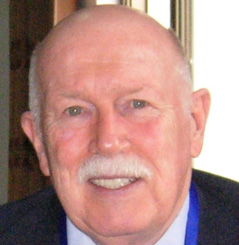I am amazed that in this day and time we still tolerate closed primaries that depend upon a person's prior voting or declaration of a party affiliation. Each voter should have that right to declare gtheir party up until the time they vote their ballot. They should then be able to chose which ballot and party they prefer in primaries. Thus all "independents" and other eligible voters should be able to choose their preferred party in each election.
Given that all humans reserve the right to change their minds, any restraint before they make their final expression amounts to a prior restraint on the right to that expression. Closed primaries clearly enforce this, and, at least when conducted by the states, amount to a violation of the Freedom of Expression guaranteed by the U.S. Constitution's First Amendment.
The United States Supreme Court expressed this supporting view in Nebraska Press Assn. v. Stuart by noting:
" The thread running through all these cases is that prior restraints on speech and publication are the most serious and the least tolerable infringement on First Amendment rights. A criminal penalty or a judgment in a defamation case is subject to the whole panoply of protections afforded by deferring the impact of the judgment until all avenues of appellate review have been exhausted. Only after judgment has become final, correct or otherwise, does the law's sanction become fully operative.
"A prior restraint, by contrast and by definition, has an immediate and irreversible sanction. If it can be said that a threat of criminal or civil sanctions after publication 'chills' speech, prior restraint 'freezes' it at least for the time."
Here, sanctioned by law, certain eligible voters may be frozen out of the moment of election because of prior action or inaction. In Near v. Minnesota the court struck down a statue prohibiting publication where the publisher was even afforded a right to come into court and prove, before publication, that the matter was true and was published with good motives and for justifiable ends. The Court said:
Some very small leeway may be extended in matters of national security and in publishing certain reports in pending litigation or perhaps on obsenity, but voting cannot be considered threats in either case. Voting cannot even be compared to exceptions describe in Near:
""the protection even as to previous restraint is not absolutely unlimited. But the limitation has been recognized only in exceptional cases. 'When a nation is at war many things that might be said in time of peace are such a hindrance to its effort that their utterance will not be endured so long as men fight and that no Court could regard them as protected by any constitutional right.' (Schenck v. United States, 249 U.S. 47, 52 , 39 S. Ct. 247, 249). No one would question but that a government might prevent actual obstruction to its recruiting service or the publication of the sailing dates of transports or the number and location of troops. On similar grounds, the primary requirements of decency may be enforced against obscene publications. The security of the community life may be protected against incitements to acts of violence and the overthrow by force of orderly government."
Answer me this, you political legal experts: Why are Closed Primaries tolerated today? Are our elections, at least in some states, so controlled by party affiliations that the largest party today, the independent voter, has lost his rights in the primary to express his own views and others have lost their right to a last minute choice of the party they elect to support at this time? Closed primaries must end, and no candidate should be recognized as the result of one.






